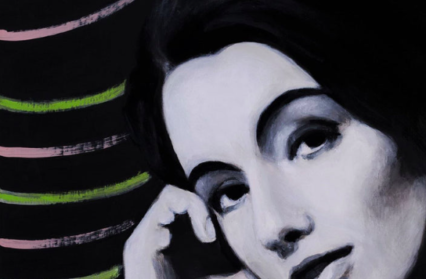Isobel Roach reviews Pearl & Bone by Mari Ellis Dunning, a poetry collection which explores the many complexities of becoming a mother during the pandemic, and the broader meaning of motherhood in society.
Following her Wales Book of the Year shortlisted debut Salacia, Mari Ellis Dunning’s sophomore collection Pearl & Bone is a record of the poet’s transition into motherhood. Deeply feminist at its core, Pearl & Bone charts Dunning’s emotional journey through pregnancy, childbirth, and the everyday acts of mothering whilst simultaneously looking outwards to the joy and heartbreak of other women and mothers. The collection has a strong sense of the now – Dunning’s electrifying foreword places her work within an intensely contemporary context of Roe V. Wade – and a deep understanding and respect for the plights of women throughout history. In honouring the lost voices of these overlooked women and placing them alongside her own, Pearl & Bone exposes the essential truth of motherhood; that it is not some universal, all-encompassing right of passage for those born with uteruses, but is instead an experience that takes many forms. Dunning’s poetry shows us pregnancies that are arduous but rewarding alongside those that are unwanted or the product of sexual assault. Self and Other collide in a series of poems that unite generations of women – from Mary in the throes of labour with only a stable to shelter beneath, to Christine Keeler posing in an artist’s studio at the mercy of the male gaze.
With its ambitious reach across time and culture, Pearl & Bone’s quieter, more personal poems anchor the collection to the present day. Here Dunning turns to the natural world to articulate the powerful bond between herself and her unborn child. Confessional poems ‘Telling your father at Bwlch Nant yr Arian’ combine the biological with the geographical as Dunning writes of ‘the way it sung beneath us, the silver brook steaming like an umbilical cord.’ This use of organic imagery and the language of nature feature brilliantly in ‘Current’, a poetic exploration of childbirth. Fluid in form and structure, ‘Current’ speaks to Dunning’s experience of birth as not merely comparable to the movements of the natural world, but as being at one with nature itself. ‘His birth stirs a current in me, calls forward an ocean, makes a tidal wave of my core.’ The female body in childbirth is powerful, forming both life and landscape so that ‘A new continent takes shape.’
Dunning’s reflections on pregnancy and motherhood are not exclusively written through the lens of nature, however. It is when the collection brings the language of the natural world into the modern, domestic sphere that Pearl & Bone is at its most exciting; ‘A Sudden Mother’ is a standout poem that does just this. Amidst the ‘Elasticated waistbands’ and ‘Nightgowns trailing linoleum’ of the maternity ward, new mothers are ‘pale and bloodless ghosts’ or ‘waning moons’ that recover from the physical and mental trauma of labour during the pandemic. This unflinching portrayal of motherhood is brutal in its honesty. Dunning writes of the longing she feels for her new-born son (‘He has shaken something loose in me, like coins rattling in an old tin’) as well as the strange isolation of seeing ‘Friends framed like portraits, stuttering their congratulations through phone screens.’
This same honesty and attention is given to the cast of historical women whose stories and voices fill the pages of Pearl & Bone. Chief among them is Christine Keeler, the woman at the centre of the Profumo affair, a political scandal that shocked nineteen-sixties Britain. A then nineteen-year-old Keeler found herself the object of the press’s – and indeed the world’s – attention when her relationship with the Secretary of State for War became public knowledge. Questions of ownership and autonomy arise in Dunning’s poems for Keeler; who has a claim to this woman, to her body? In ‘Flash’, Keeler models for photographer Lewis Morley as he takes a provocative nude image of her, ‘stripped and bare as a newborn foal.’ Later in the collection, we see Keeler further preyed upon by those that would consume her. In ‘Poem for Christine Keeler’ the subject regains the voice that was taken from her, recounting that ‘they hounded, flayed my skin like apple peel, sliced me to the core.’
The reclamation of voice is at the heart of Pearl & Bone’s various incarnations of historical and literary women. Bertha Mason, Charlotte Brontë’s unfairly condemned mad woman in the attic, longs from freedom as much as Christine Keeler; ‘the window lunges open, like a woman finally speaking, like arms outstretched.’ Similarly, Zelda Fitzgerald rallies against her own materialistic objectification at the hands of the husband she still tragically loves. Dunning lets Zelda talk back to Scott, and has her confess that ‘You had me parcelled and delivered like a watch-charm at your sleeve.’ From Eve to Mary Magdalene to the Xenomorph in Ridley Scott’s Alien, Dunning’s versatility of voice and poetic empathy is incredibly broad in scope – as is her enduring conviction in the strength of women to fight back against those that would oppress them. Pearl & Bone is quiet in its fury and resilient in its hope, even in the face of political upheaval. Dunning’s poems reinterpret the struggles of the past for a turbulent present; there is no doubt that her work will chart the shape of the future, too.
Pearl & Bone by Mari Ellis Dunning is available via Parthian.












